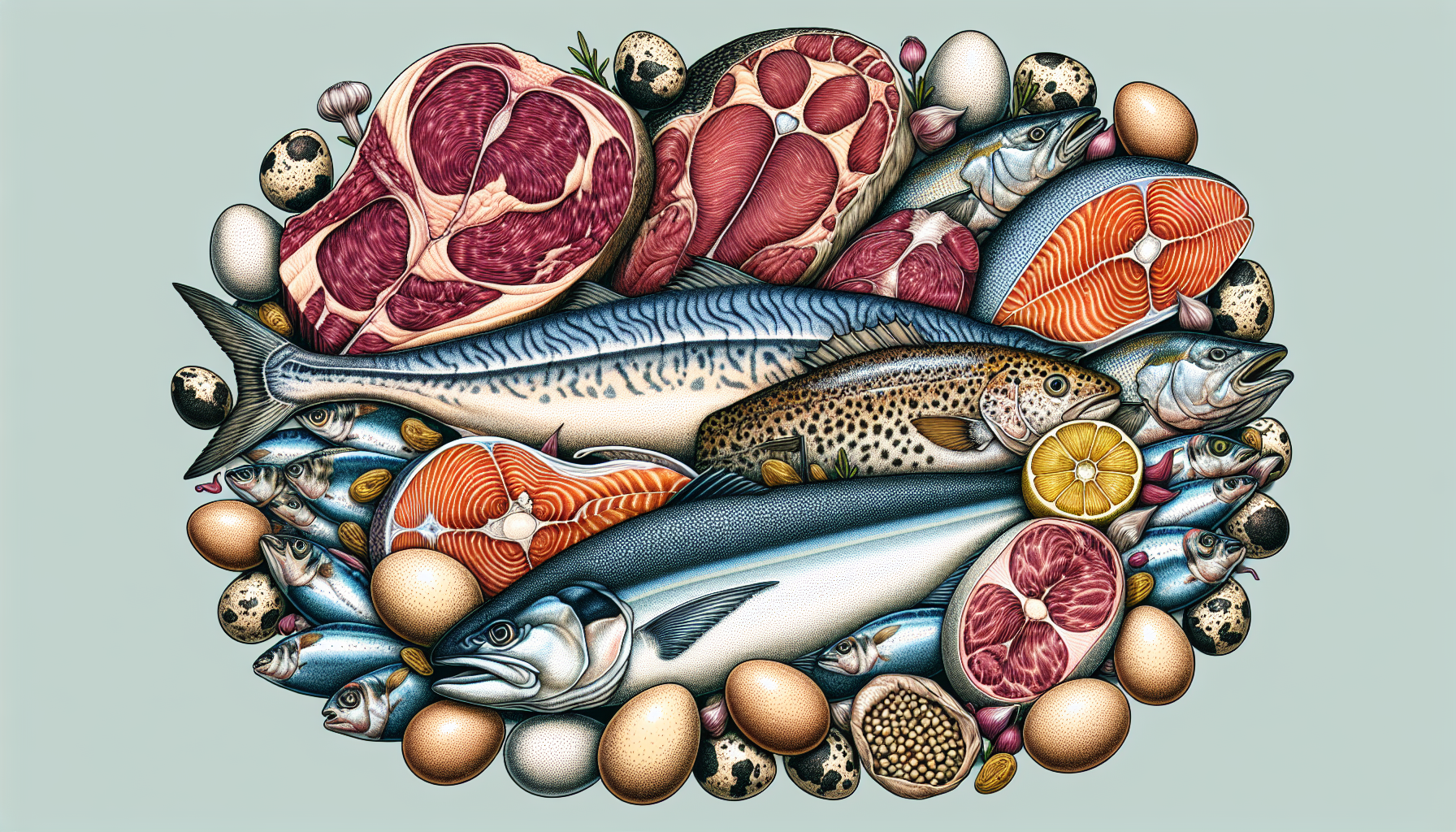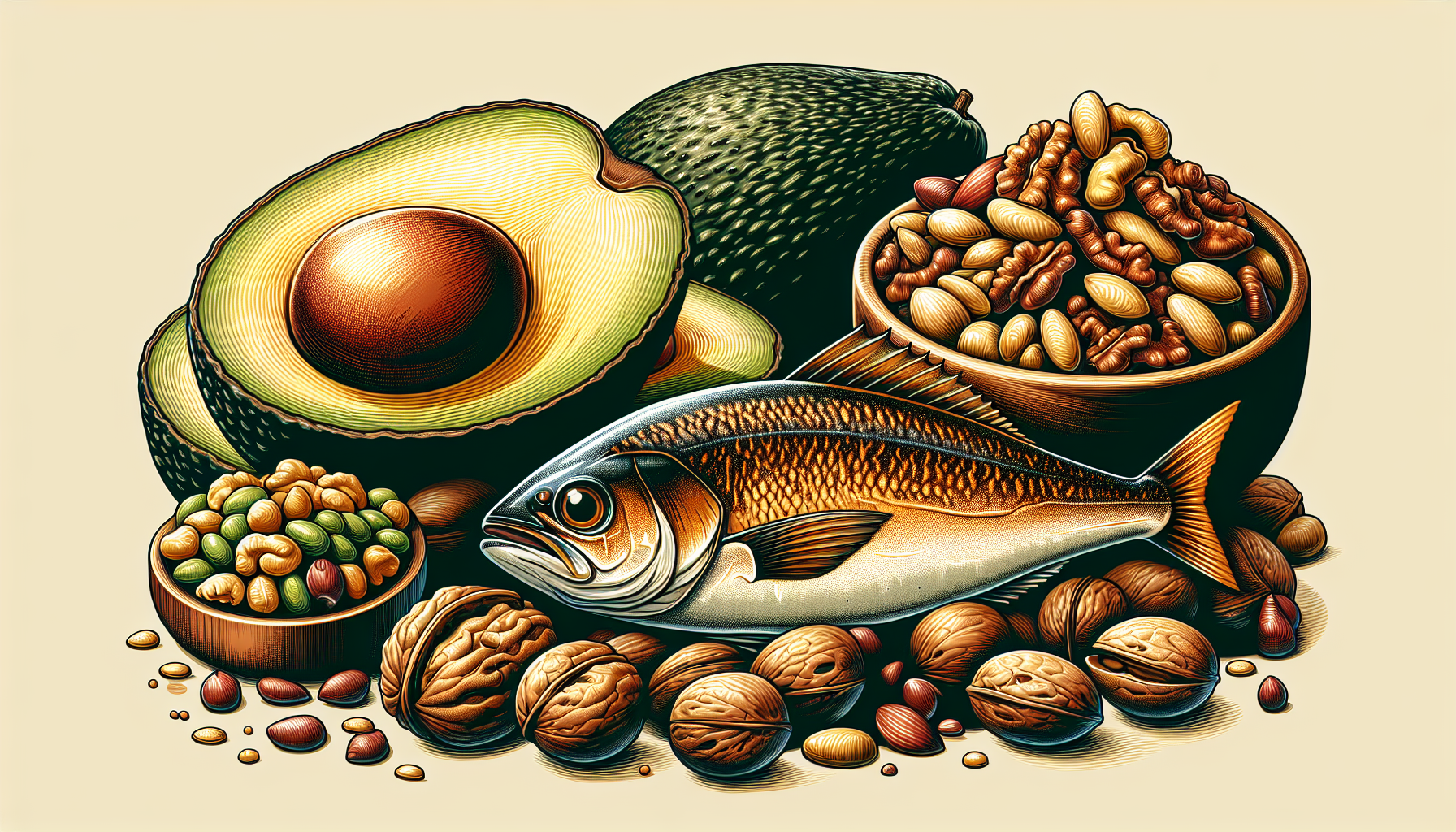Is the Carnivore Diet Better Than Keto? Exploring the Ultimate Low-Carb Showdown

Is the carnivore diet better than keto for you? Decoding this question is vital for anyone navigating the low-carb diet landscape. This article strips away the complexities, presenting a clear comparison to help you understand which diet can better serve your health objectives, giving you the facts you need to forge your path.
Key Takeaways
- The carnivore diet is a restrictive all-meat, zero-carb diet aimed at health benefits such as weight loss and improved gut health but may pose risks of nutritional deficiencies and questions regarding its long-term impact.
- The ketogenic diet focuses on high fat, moderate protein, and low carbs to induce ketosis, offering health benefits like blood sugar control and increased good cholesterol, necessitating careful macronutrient tracking.
- While both diets aim to reduce carb intake and focus on high fat and protein, they differ in sustainability, nutritional variety, and long-term health effects, prompting some individuals to consider a hybrid approach that combines elements of both.
Understanding the Carnivore Diet: A Zero Carb Approach to Eating

A carnivore diet is fundamentally an eating pattern that solely relies on meat and other animal products, eliminating plant-based foods completely. Its goal is to achieve zero-carb intake, which makes it highly restrictive. This uncompromising approach to nutrition has made the carnivore diet a topic of intense debate, with proponents highlighting potential health benefits, and critics warning about potential deficiencies.
The Basics of Carnivore Eating Habits
A range of animal-based foods like meat, fish, eggs, and select dairy products are included in the carnivore diet. This diet emphasizes the consumption of these specific food groups. A well-rounded carnivore diet also emphasizes organ meats and seafood to deliver essential nutrients like vitamins A and B12 from liver, and omega-3 fatty acids from fatty fish like salmon. With the growing popularity of carnivore diets, it’s important to understand the benefits and potential drawbacks of this dietary approach, especially for those who choose to eat meat.
Potential Benefits of an All Meat Diet
Several potential benefits of the carnivore diet include:
- Weight loss
- Improved gut health
- Reduced risk of diseases such as cancer, heart disease, and type 2 diabetes
- Resolution of health issues ranging from metabolic syndromes to autoimmune conditions
The diet’s focus on whole foods, as opposed to processed foods, may contribute to these benefits, including helping people to lose weight.
Challenges and Considerations
The carnivore diet, however, does come with its own set of challenges, despite these potential benefits. These include:
- Possible deficiencies in several vitamins and minerals due to the exclusion of plant-based foods
- The diet is also highly restrictive, offering limited food choices
- Raising questions about its long-term health impact.
Delving into the Keto Diet: High Fat, Moderate Protein, Low Carb

Contrastingly, the low carb diet, specifically the ketogenic diet, is a nutritional approach that focuses on high fat, moderate protein, and low carbohydrate intake. The ketogenic diet works by priming the metabolism to use fat as a fuel instead of carbs, aiming to get the body into a state of ketosis by reducing carb intake.
Ketosis is a metabolic state where fat becomes the primary fuel, resulting in efficient fat burning.
What Constitutes a Ketogenic Diet Plan
A variety of foods are included in a balanced ketogenic diet plan. Some examples include:
- Avocados
- Olive and avocado oils
- High-cocoa chocolate
- Fatty fish like salmon
- High-fat yogurt
- Nuts and seeds
- Berries
These foods provide healthy fats, essential nutrients, and beneficial antioxidants without too many carbs.
Health Advantages of Keto Dieters
Multiple health advantages are provided by the keto diet. These include controlling blood sugar levels, which is particularly beneficial for individuals with type 2 diabetes. Weight loss is another major benefit reported by keto dieters.
Additionally, the diet can lead to an increase in good cholesterol levels, promoting cardiovascular health.
Balancing Macronutrients and Counting Calories
In contrast to the carnivore diet, the keto diet necessitates meticulous macronutrient tracking for maintaining its effectiveness. The typical macronutrient ratio for a keto diet is 70-80% of calories from fat, 15-30% from protein, and 0-10% from carbohydrates, necessitating precise calorie tracking to optimize these macronutrients for entering and staying in ketosis.
Carnivore vs Keto: Breaking Down the Differences
Even though both keto and carnivore diets share the principle of reducing carbohydrate intake and focusing on high fat and protein, there are notable differences between the carnivore and keto diets. Understanding these differences is crucial in choosing the diet that best aligns with your nutritional needs and lifestyle preferences.
Carbohydrate Consumption and Ketosis
While both diets strive to reduce carb intake and induce ketosis, the carnivore diet, also known as the zero carb diet, is unique in its higher protein content and zero-carb feature. This makes the carnivore diet a more extreme approach to achieving ketosis, which may not suit everyone’s dietary preferences or nutritional needs.
Nutritional Diversity and Potential Deficiencies

When it comes to nutritional diversity, the keto diet has a clear advantage over the carnivore diet. It allows for the inclusion of non-starchy vegetables and other low-carb plant foods, providing a more nutritionally diverse intake.
On the other hand, the restrictive nature of the carnivore diet could lead to potential nutrient deficiencies for carnivore dieters.
Dietary Sustainability and Long-Term Effects
Due to the availability of nutritious low-carb options, the keto diet is generally seen as more sustainable. The carnivore diet, on the other hand, can feel monotonous and offers uncertain long-term health outcomes. However, some individuals may find the carnivore diet easier to adhere to due to its simplicity and lack of macronutrient tracking.
Who Might Choose Carnivore Over Keto?
Certain individuals might find the carnivore diet more appropriate than the keto diet, despite potential challenges. This can be particularly true for individuals with autoimmune conditions or gastrointestinal disorders, or athletes seeking high protein intake.
Individuals with Specific Food Intolerances
The carnivore diet can serve as an elimination diet, helping individuals with food sensitivities identify their triggers. By starting with a base of only animal products and slowly reintroducing other foods like eggs and dairy, individuals can monitor for adverse reactions and identify specific intolerances.
Athletes Seeking High Protein Intake
Athletes might find the carnivore diet’s high protein intake from animal sources beneficial for muscle building and recovery. By prioritizing protein intake from diverse meat sources, athletes can support muscle repair and overall metabolism.
Integrating Keto and Carnivore Principles: A Hybrid Approach
A hybrid approach, which combines principles from both diets, is another option if neither diet seems entirely suitable. Starting with a strict carnivore phase to achieve ketosis and gradually including low-carb plant foods can provide the benefits of both diets while mitigating their challenges.
Incorporating Essential Nutrients from Both Diets
The hybrid approach offers a more varied nutrient intake. It starts with a base of meat, fish, and eggs from the carnivore diet and incorporates keto principles with the inclusion of avocados, nuts, and low-carb vegetables. However, individuals might still need to use supplements to fill nutritional gaps.
Tailoring Your Diet Plan for Optimal Health
Tailoring the chosen diet to individual needs, regardless of the diet, is crucial for optimal health. This often involves working with healthcare professionals to determine the best approach, monitoring your health markers regularly, and making adjustments as necessary.
Summary
In the carnivore vs keto showdown, it’s clear that both diets have their unique strengths and challenges. The carnivore diet, with its zero-carb, all-meat approach, offers simplicity and potential benefits for individuals with specific health conditions. Meanwhile, the keto diet, with its emphasis on healthy fats and moderate protein, provides greater nutritional diversity and is generally considered more sustainable.
Ultimately, the choice between the carnivore diet, the keto diet, or a hybrid approach depends on your individual health goals, dietary preferences, and lifestyle. Remember, what works for one person might not work for another. Therefore, it’s crucial to consult with healthcare professionals and monitor your health regularly to ensure your chosen diet is benefiting you in the long run.
Frequently Asked Questions
What are the main differences between the carnivore and keto diets?
The main difference between the carnivore and keto diets is that the carnivore diet allows only animal products and aims for zero carbs, while the keto diet includes a wider variety of foods like meats, fish, and plant-based foods.
Can you achieve ketosis on the carnivore diet?
Yes, the carnivore diet can lead to ketosis because of its minimal carbohydrate intake.
Which diet is more nutritionally diverse?
The keto diet is more nutritionally diverse due to the inclusion of non-starchy vegetables and low-carb plant foods.
What is a hybrid diet?
A hybrid diet combines aspects of both the carnivore and keto diets, starting with a strict carnivore phase and gradually integrating low-carb plant foods to achieve ketosis effectively.
How can I tailor a diet plan for optimal health?
To tailor a diet plan for optimal health, work with healthcare professionals, regularly monitor your health markers, and make necessary adjustments.
